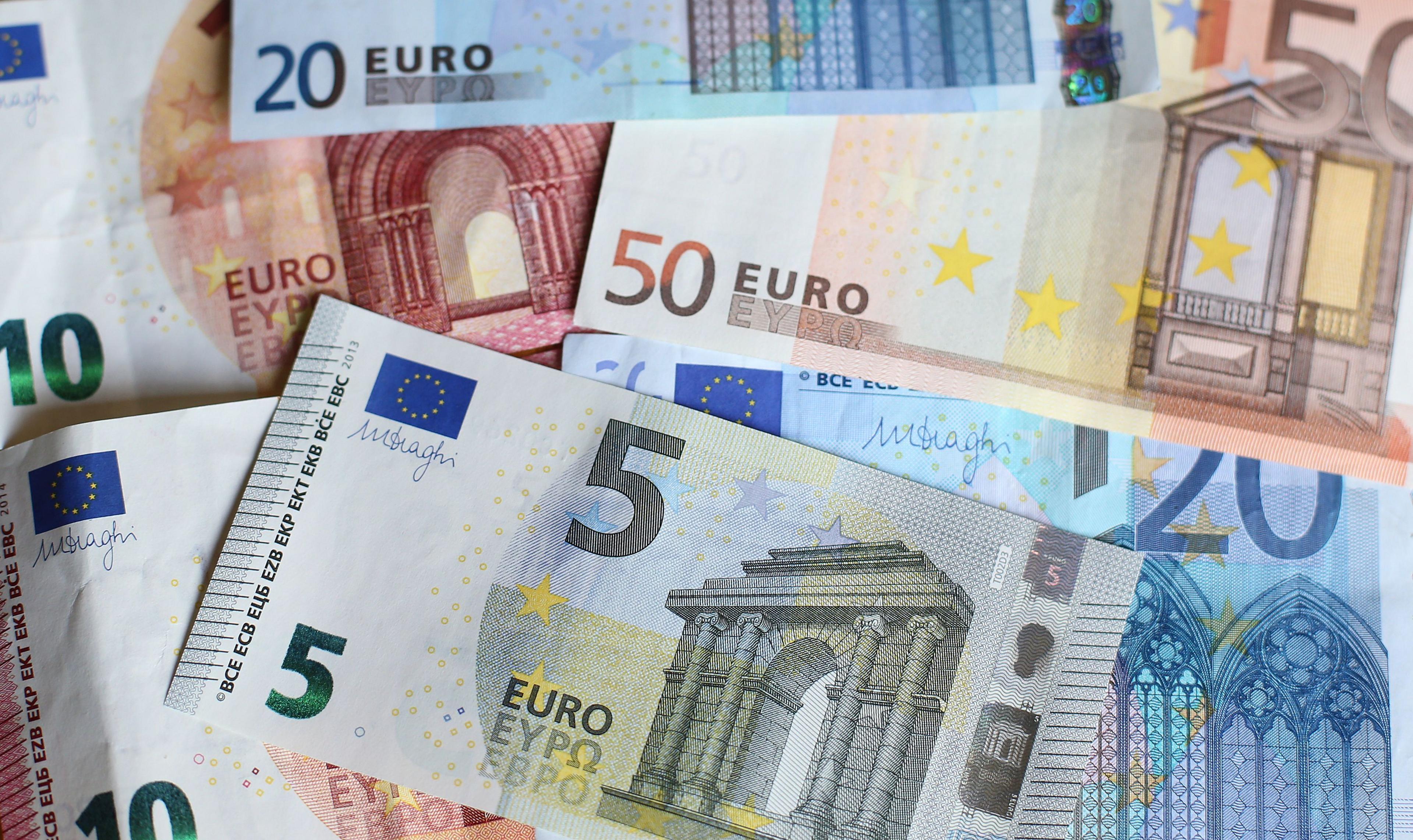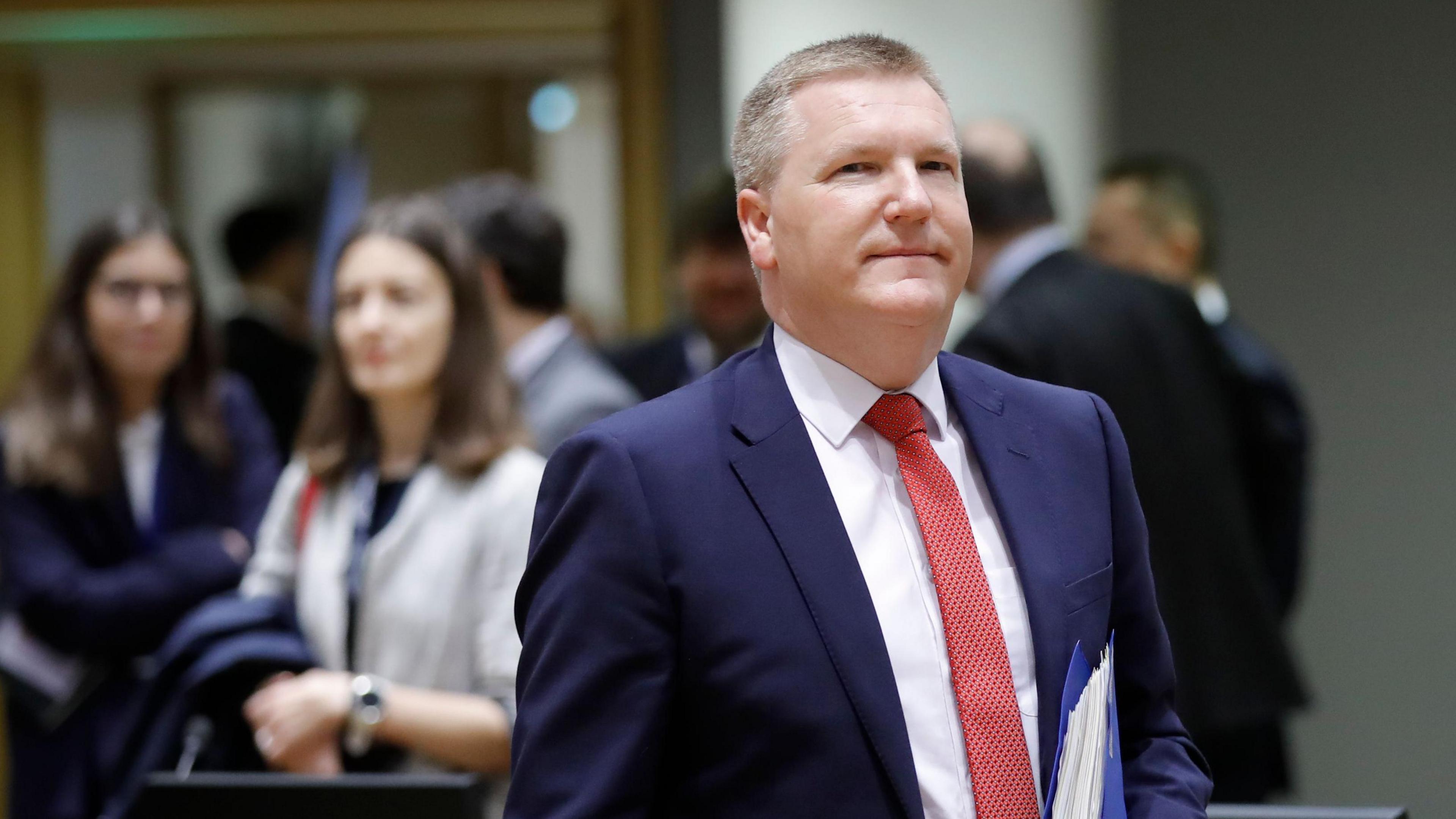Ireland forecasts budget surplus of more than €8bn

- Published
The Irish government has said it expects to run a budget surplus of more than €8bn (£6.8bn) in 2024.
It is equivalent to almost 3% of the national income.
It is the third year in a row the government will have taken in more in taxes than it spends.
Ireland is in the unusual position of being able to run surpluses due to a windfall of revenues from corporation tax.
It has begun the process of setting up a sovereign wealth fund using some of the tax windfall.
The aim is to establish a fund with assets of €100bn (£86bn) by the middle of the 2030s.

Irish Finance Minister Michael McGrath said the government is projecting a headline surplus of €8.6bn for this year
The Irish Finance Minister, Michael McGrath, said the government is projecting a headline surplus of €8.6bn (£7.4bn) for this year.
"This is based on the assumption of tax revenue amounting to almost €92.1bn, a growth rate of 4.6%," he said.
"However, I would caution that this surplus is heavily dependent on volatile 'windfall' corporate tax receipts which have grown from €4bn to €24bn in the space of a decade."
His department has also forecast that Ireland's domestic economy will grow by 1.9% this year and 2.3% next year.
'Reasonably good shape'
This year's forecast has been revised down slightly since October's budget.
Irish domestic output is estimated using a measurement called Modified Domestic Demand (MDD).
It strips out the distorting effects of multinational companies on Ireland's GDP measurement.
MDD grew rapidly after the pandemic but growth slowed to just 0.5% last year as inflation and higher interest rates hit disposable incomes.
Mr McGrath said the evidence suggests the economy is in "reasonably good shape" and that some inflationary pressures should continue to ease and "support a pick-up in economic activity".
He added the "brightest economic spot" is the labour market with the country expected to remain at around technical full employment for the foreseeable future.
Despite the strong economic performance, Ireland's governing coalition is struggling in the polls as high housing costs and strained public services mean many people feel they are not sharing in the country's prosperity.